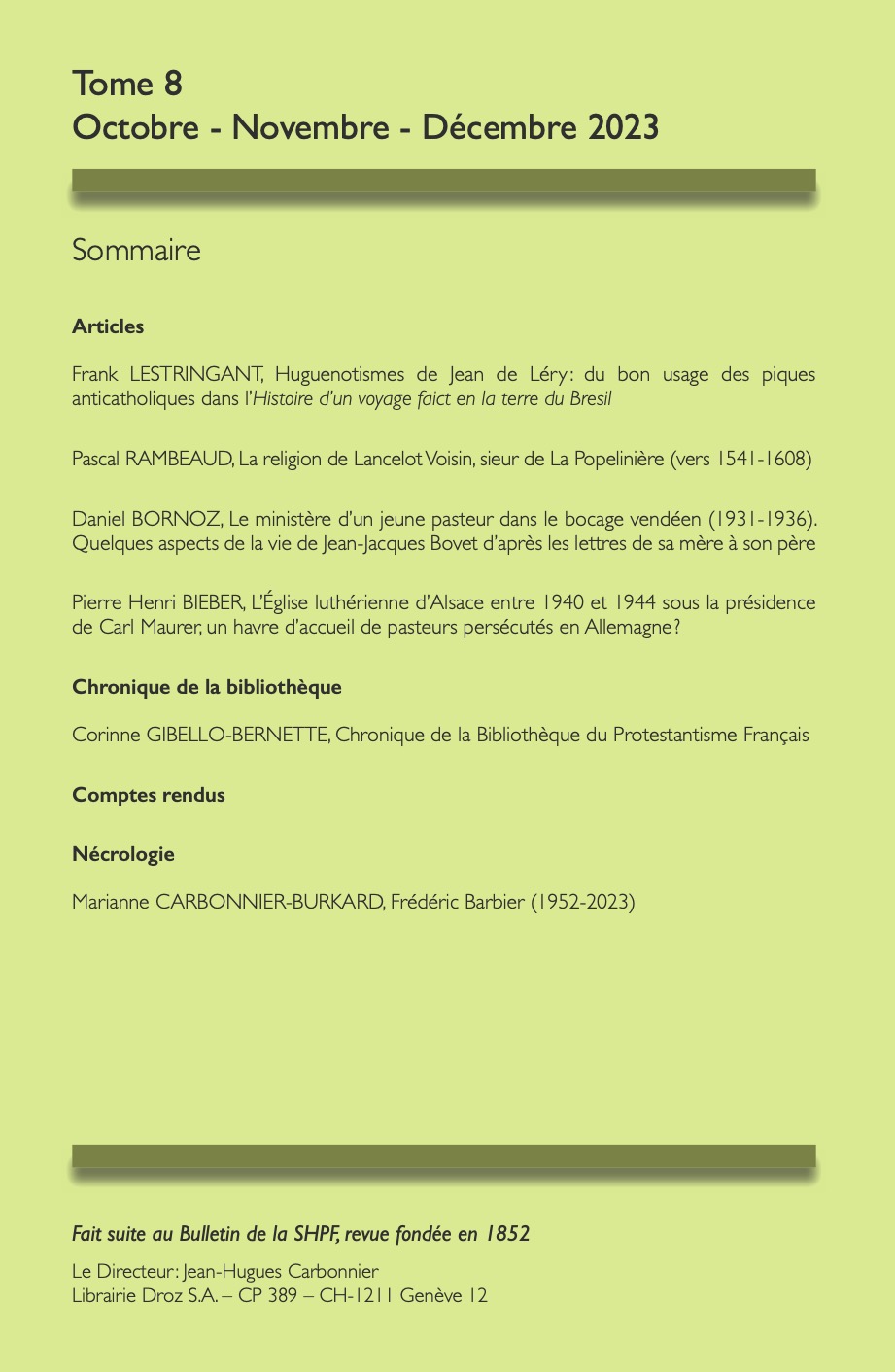Huguenotismes de Jean de Léry
Du bon usage des piques anticatholiques dans l’Histoire d’un voyage faict en la terre du Bresil
Abstract
One thing that strikes the reader about Jean de Léry’s Histoire d’un voyage faict en la terre du Bresil (1578) are the dozens of offhand remarks which Léry, a Calvinist pastor, makes against the Catholic faith. There is a clear line demarcating good and bad religion, between the religion of God and the religion of the devil. These incidental attacks or “Huguenotisms” are frequent in the Preface and Chapter 16 (on the religion of the Tupinambá Indians), though one encounters them almost everywhere throughout the work.
Nevertheless, this does not prevent the Jesuits from profiting from the Histoire d’un voyage. They gladly adopt from De Léry anything relating to Brazil, more so, in fact, than from his opponent André Thevet—although it is cleansed of all the Huguenotisms. The whole point is to illustrate the evidence of God for all the people of the earth, regardless of what the militant atheists may say.
- Frank Lestringant, Villegagnon, entre légende noire et légende dorée, Revue d'histoire du protestantisme: Vol. 1 n° 1 (2016): Varia
- Frank Lestringant, Michel Jeanneret, Revue d'histoire du protestantisme: Vol. 4 n° 2 (2019): Dossier & Varia
- Frank Lestringant, Daniel Ménager (1936-2020), Revue d'histoire du protestantisme: Vol. 5 n° 2-3 (2020):

